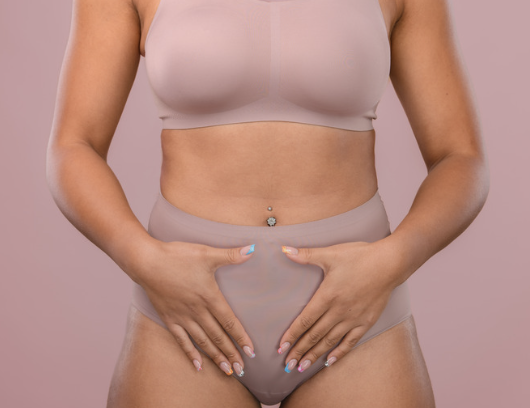Your vaginal microbiome is really important in a whole range of health outcomes including: recurrent UTIs, BV, STDs, vaginal dryness, and more — however today we will focus on the role of vaginal health in your fertility and chances of success.
Note: when discussing the vaginal microbiome, we will often reference the relative amounts of bacteria present. This means the percentage of the specific bacteria which make up the vaginal microbiome. In general terms, we want a 95% or over percentage of the vaginal microbiome to be comprised of ‘good’ bacteria in order to indicate a balanced environment.
We use relative amount rather than simply presence of specific bacteria, as this is what research uses in its studies and tests. This is also what the ScreenMe Vaginal Health swab tests look for (rather than other methods such as PCR and swabs — which indicate only the presence of specific selected bacteria).
THE FACTS:
The 4 main ways in which your vaginal health can limit your fertility are:
- Miscarriage Risk
- Research shows people with imbalanced vaginal microbiomes are more likely to experience recurrent miscarriage and pre-term birth.
- The presence of ‘good’ bacteria protects against common miscarriage causes including genital infections and inflammation.
- This is not a small issue — with 1 in 4 pregnancies ending in loss of which around half of these are unexplained.
- For more information on the link between miscarriage and vaginal health, then head over to our dedicated blog post.
2. IVF & ART Success
- Research shows that women with unfavourable vaginal microbiome profiles (so lower relative amounts of ‘good’ bacteria) were much less likely to become pregnant through IVF.
- The vaginal microbiome’s role in IVF is thought to be linked to a higher chance of successful embryo transfer.
- This extends to other ART (assisted reproductive technologies), with research demonstrating that vaginal microbiomes with high (dominant) relative amounts of ‘good’ bacteria were associated with achieving pregnancy.
3. Unexplained Infertility
- Research shows that women who have infertility concerns are associated with having pathogenic bacteria and an imbalance in their vaginal microbiome.
- With infertility on the rise according to the CDC (Centers for Disease Control and Prevention), it is more important than ever to investigate our own bodies and see what we can do to improve our chances.
4. Preterm Birth
- Research shows lower relative amounts (percentages) of specific ‘good’ bacteria in the vaginal microbiome have been linked to increased risk of preterm birth.
- More and more people are giving birth prematurely — with this being linked to a whole range of health issues for children increasing breathing and digestive issues.
- For more information on the link between preterm birth and vaginal health, then head over to our dedicated blog post here.
THE SCIENCE & WHAT YOU CAN DO:
The vaginal microbiome is a fascinating field and more and more research is being released detailing it’s important for so many parts of women’s health.
In regards to good vaginal health and fertility, the basic understanding is that the presence of ‘good’ bacteria generates a balanced vaginal microbiome. These bacteria work to maintain your vaginal pH, prevent inflammation, and protect against other ‘harmful’ bacteria or pathogens.
However, if you do not have sufficient relative amounts of these bacteria present [so, the % of your vaginal microbiome which is made up of ‘good’ bacteria], then your vaginal health is at risk from unwanted microorganisms, which can limit your fertility! We want to have a ‘good’ bacteria percentage of at least 95% of the composition of the vaginal microbiome. This indicates a healthy microbiome, which will improve your fertility, limit your risk of infections, disease, uncomfortable symptoms, and much more.
This is why ScreenMe’s Vaginal Health swab test is the most comprehensive available. By screening 100% of the bacteria present in your vaginal microbiome, we are able to tell you the % of ‘good’ bacteria present.
But your vaginal health is something you can change. Combining your results with a free 1:1 consultation with an intimate health practitioner, ScreenMe tells you how you can improve your vaginal microbiome, rebalance, and ultimately achieve your intimate health goals — whether they be fertility success, infection prevention, IVF success, or more!
Essentially, the vaginal microbiome is like the doorway to your house. A less protective, imbalanced microbiome leaves you open to intruders causing infections or inflammation in reproductive organs. Meanwhile, a well-protected environment keeps them out.
ScreenMe is here to explain, support and guide you to your individual health goals.
Fariba Khonsari



